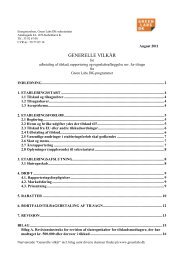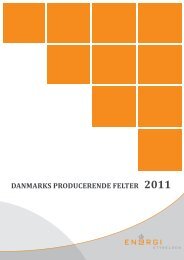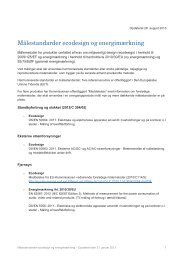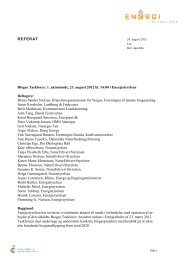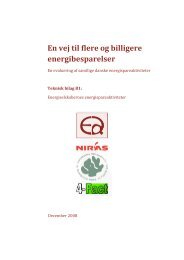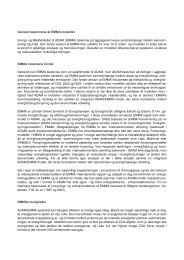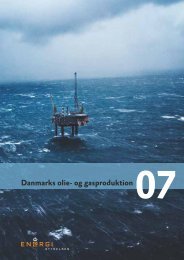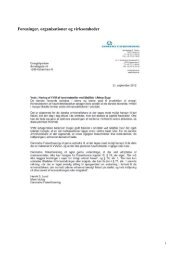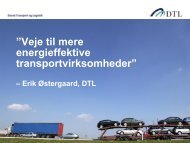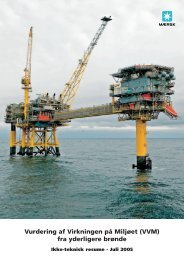Energy Strategy 2050 – from coal, oil and gas
Energy Strategy 2050 – from coal, oil and gas
Energy Strategy 2050 – from coal, oil and gas
Create successful ePaper yourself
Turn your PDF publications into a flip-book with our unique Google optimized e-Paper software.
Background The government will<br />
An energy system with appropriate<br />
financial incentives<br />
A cost-effective transition to fossil fuel independence<br />
requires financial incentives, which as far as possible<br />
are uniform across different sectors of society. This will<br />
ensure the expansion of the renewable energy technologies<br />
that are the most competitive under current world<br />
market prices for fossil fuels, CO2 emissions <strong>and</strong> renewable<br />
energy.<br />
The government will therefore analyse the existing subsidy<br />
<strong>and</strong> tax system in the energy <strong>and</strong> transport sectors<br />
<strong>and</strong> examine the consequences of gradually increasing<br />
the taxes on fossil fuels. The dual purpose is to ensure<br />
government revenues, <strong>and</strong> thus the basis for continued<br />
welfare, <strong>and</strong> at the same time reduce the use of fossil<br />
fuels with cost-effective incentives. Tax-related issues<br />
with relevance for heat production, e.g. excess heat, will<br />
be examined in connection with the analysis.<br />
In light of the uncertainties linked to technological<br />
development <strong>and</strong> fuel prices, the results of efforts will<br />
be monitored systematically <strong>and</strong> they will be subject to<br />
regular evaluation.<br />
• Carry out regular evaluation of the effect of instruments<br />
deployed in order to ensure adequate progress<br />
towards the goal of fossil fuel independence<br />
<strong>and</strong> to ensure cost-effectiveness in overall efforts,<br />
including developing an analysis tool which can help<br />
clarify security of supply issues<br />
• Carry out an evaluation of overall efforts every four<br />
years<br />
• Carry out an examination of the subsidy <strong>and</strong> tax system<br />
in order to assess the need for adjustments of<br />
the existing system. This should be seen in the context<br />
of Denmark’s international climate <strong>and</strong> energy<br />
commitments as well as the objectives for fossil fuel<br />
independence in the strategy, <strong>and</strong> the public budget<br />
• Establish an economic model for use in the energy<br />
sector, in order to improve the basis for performing<br />
socio-economic analyses within climate <strong>and</strong> energy.<br />
<strong>Energy</strong> <strong>Strategy</strong> <strong>2050</strong> <strong>–</strong> <strong>from</strong> <strong>coal</strong>, <strong>oil</strong> <strong>and</strong> <strong>gas</strong> to green energy.<br />
39



